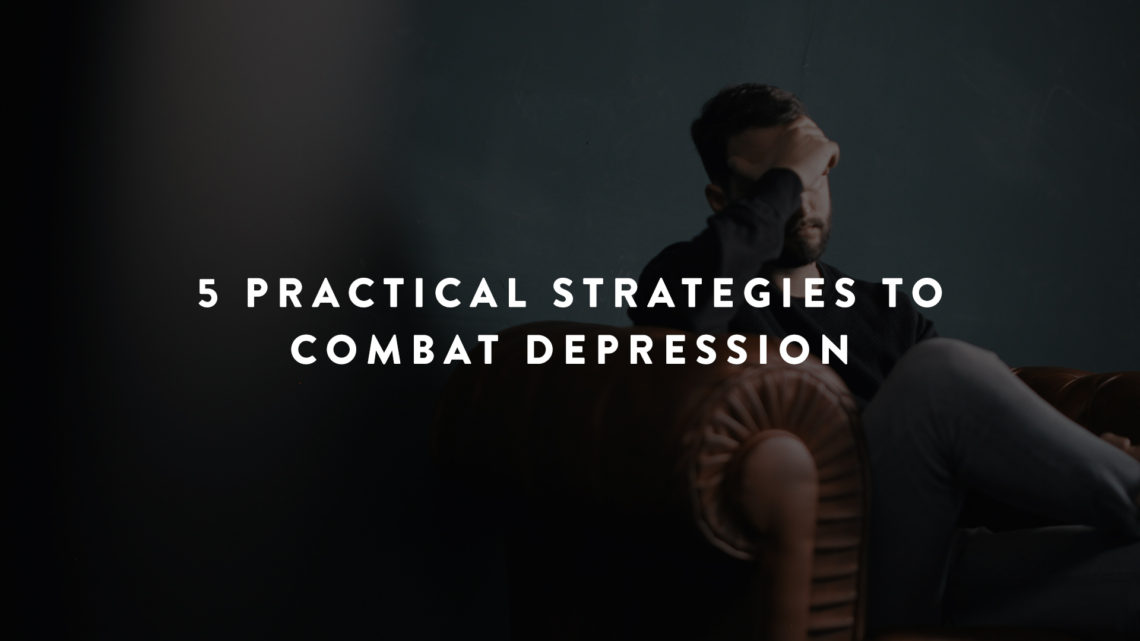
February 22, 2019 | Dr. Chinwé Williams | 0 Comments
In our attempt to keep pace in this fast-paced world, or to be a model parent who takes good care of our families, many of us experience times when we aren’t quite at 100%. Sadness and the occasional low mood are a normal part of being human. But when those negative feelings persist for months at a time, on most day, it can be a sign of depression.
Depression is different from sadness because it is a prolonged experience that often leads to avoidance of things that you enjoy and even people that you love.
In addition to social withdrawal, common symptoms of depression can include feelings of hopelessness, self-loathing, and excessive guilt. Physical symptoms can include disturbed sleep, over or undereating, chronic fatigue and constant body pains and aches.
Depression can sap your energy and decrease your to enjoy life, and it can take a tremendous toll on you and your family. Simply stated, depression is dark and heavy.
At some point in our lives, most of us will face events that are very stressful or that shakes us to our core causing depression. At those times, employing simple lifestyle practices can make a big difference.
If you are experiencing depression, you are not alone.
While medication might be a necessary solution for some, the good news is that there is now ample research on non-medicated ways to tackle depression. The following suggestions may be helpful in dealing with tough times:
1. Keep a Thought Diary
Thoughts and feelings are intimately connected. When depressed, many thoughts are negative and revolve around similar themes, e.g., feelings of failure, or not feeling good or worthy enough. For one week, keep a journal and jot down each thought and the corresponding feeling. For example, when thoughts about a recent negative interaction with your souse or child pops up, write that down and try to recognize the feeling you experience.
Feelings can be stated in one word, such as “hurt,” “angry,” or “sad.” Reflect on images or memories that may come to mind that could explain why you may feel the way that you do. It is important to be honest with yourself. Many people avoid thinking about these uncomfortable thoughts because frankly, it is quite scary to acknowledge them. This exercise of monitoring thoughts and how they make you feel, while initially daunting, can be freeing.
Research suggests that people who spend time writing about difficult life events had better overall health and less depression. Your bravery will pay off!
2. Dynamic Duo: Mental Focus and Exercise
We’ve heard it before. Exercise positively impacts us physically and mentally. The power of simple lifestyle interventions is well-researched. In addition to getting adequate rest, 30 minutes of cardio, 3-5 days per week, helps to protect the brain against both anxiety and depression.
While we all know the benefits of exercise, fewer people are aware of the impact of improved mental focus combined with exercise. The practice of paying attention in the present moment, while calmly and non-judgmentally accepting one’s thoughts and feelings helps us to notice more positive aspects of our experience that depression tends to ignore. Reflecting on positive thoughts, deep breathing, and even praying while exercising are all simple practices that can improve mood and decrease anxiety.
3. Connect with Others
Depression is hard. It’s also exhausting. The inclination is to circle the wagons and retreat inward. But research suggests that to combat depression, we do just the opposite. Studies indicate that people facing adversity felt less depressed after problem-solving. The issue is that depression affects concentration which makes it quite difficult to problem solve alone.
When depressed, little tasks can feel very overwhelming! This highlights the importance of connecting with others. When feeling over-extended, ask someone to help you with pressing tasks. Sometimes the simplest things can make a big difference.
Additionally, accepting emotional support is critical. There is no shame in reaching out to others or accepting help when down. Sharing your frustrations, crying, or talking out your feelings with a friend can relieve tension, release stress, and help you feel less alone.
Consider seeking professional support if you need it. Be sure to find a professional who is well trained. One of the best forms of therapy to treat depression is Cognitive Behavioral Theory (CBT). A therapist trained in CBT can assist you in recognizing unhealthy thinking habits so that you can relate in healthier ways to yourself and others.
4. Shift Your Thinking
Thoughts impact your brain. How you think about a problem influences both how much it distresses you and how well you manage it. Practice shifting your mind away from negative thoughts or excessive worries about the future. Here are some suggestions:
- Ask yourself how realistic your worry is. Ask yourself, what is the probability that this event will actually occur? Our imaginations can catastrophize events and push us (mentally) into situations that may never develop. Then the fear cycle ensues.
- Practice setting aside “worry time” each day. Whenever a negative thought encroaches, remind yourself to wait until the scheduled time. You may find that you actually feel better by then.
- Focus on the positive aspects of your life. We all fall prey to negative thinking. But intentionally taking stock at what’s going well in your life can help to shift your perspective.
- Surround yourself with positive people. Keep good company. Have you notice how some people zap your energy? Surround yourself with friends that will inspire and motivate you. Seek out people who will empower you to make the necessary positive changes.
- Look at tough times as an opportunity to grow or improve your situation. Some of the most powerful learning comes from tough circumstances, which can in turn build resilience.
5. Be of service
Some of the happiest people in the world are also the most generous. Generosity need not involve monetary offerings. One of the best ways to combat sadness is to focus on meeting a need for someone else. Choose to make someone smile. This works because you are shifting your focus from inward to outward. Identify someone or some cause that is important to you. It can even be someone you’ve never met before or a cause you don’t know much about. Decide to serve others even if you don’t feel up to it. Because depression zaps energy, it is okay to start small. You may be surprised at the joy (and energy) you experience by bringing happiness to others.





